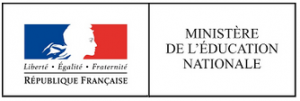Guidance in upper secondary schools is reinforced and is integrated into the “Plan étudiants” (student plan). It aims at preparing and accompany the high school student to the way of higher education.
More information about the “Plan étudiants”.
SERVICES AND PRACTICE
Guidance services for young people:
There is no guidance provision in primary schools. Around 400 guidance services called “Centre d’information et d’orientation (CIO)”, depending on the Ministry of Education, are directed towards post-primary schools, higher and further education institutions.
The Ministry of Education is also in charge of the national information provider “Office national d’information sur les enseignements et les professions (ONISEP) and of the “Mission de lutte contre le décrochage scolaire (MLDS)” which is an entity focusing on school drop outs. E-guidance service is provided by ONISEP.
The local offices “Missions Locales (ML)”, target youngsters (16-25 years) with social and work integration difficulties. There are also more and more private guidance centres and private press agencies in the field of information and guidance, such as L’Etudiant, Studyrama targeting pupils and students.
Guidance services for students:
At each university, there is a guidance service available to students called SCUIOP “Service Commun Universitaire d’Information et d’Orientation et d’Insertion Professionnelle”. The activities of the individual SCUIO differ, but they all comprise: information and counselling for students, organization of fairs and open days, production of information material, information to upper secondary school students, workshops on job seeking and occupational integration etc. Students, who are enrolled in higher education but not at a university can use the services of the CIOs.
The « Parcours Avenir » programme for secondary schools
The purpose of the “Parcours Avenir” programme, included in the curricula implemented in secondary schools, in partnership with economic, social and professional players, is to help each pupil progressively develop their learning and career management skills whilst, at the same time, enabling them to discover the socio economic and business world.
The background
Given the ever-changing world of work, it is vital that pupils have the opportunity to acquire the knowledge and skills that will help them become acquainted with the dynamics of their socioeconomic environment and anticipate society. To address these key challenges, the Ministry of National Education and the Ministry of Higher Education, Research and Innovation, amongst others, the “Parcours Avenir” programme.
Pursuant to the European framework which recommends that Member States “encourage the lifelong acquisition of career management skills”, the French government therefore made the commitment to help each pupil prepare their professional integration and manage the transitions they may have to face. This commitment also aims to diversify guidance programmes for girls and boys and to promote gender balance in training systems and professions.
The “Parcours Avenir” programme, enacted in the French Framework and Planning Law of 8 July 2013 for restructuring France’s schools and implemented in all secondary schools in September 2015, is one of the four programmes defined in this Law : Health Education programme, Artistic and Cultural Education programme and Citizen programme.
The aims
- Discover the world of work and business: The “Avenir” (Future) programme focuses on acquiring skills and knowledge related to the socioeconomic and business world.
- Develop a sense of commitment and initiative: Pupils learn to identify, anticipate and be involved in changes, to enhance their level of qualification and knowledge and, possibly, to alter the course of their professional pathway throughout their life.
- Draft an educational and vocational guidance project: Based on an active, personalized guidance approach, the programme proposes informational tools which help pupils develop their reflective abilities and empowering learning and career management skills for their secondary education. It also advocates questioning social and gender stereotypes which frequently confine girls and boys to predetermined choices.
Organization
The “Parcours Avenir” programme, under the responsibility of the school principal (or head teacher), mobilizes everyone in the educational team (teachers, chief education advisor, school/business coordinator, parents, etc.) in relation with partners from the socio economic and business world. It also benefits from the support of inspection bodies and guidance practitioners (information and guidance centre directors, psychologists-guidance counsellors, etc.).
This collaborative approach in the “Parcours Avenir” programme outlook and the development of transdisciplinary projects promotes dialogue within the educational community and makes guidance a joint work topic.
The « Parcours Avenir » programme, part of the common core of secondary education knowledge and curriculums, is firmly established in all curriculum disciplines.
The content
The “Parcours Avenir” programme is based on a programme of initiatives, spread over the seven years of secondary education and integrated into each school’s project. These initiatives are implemented in all disciplines and are supported by collective events (a day dedicated to discovering the world of business, pupils’ forum, School-Company week, Industry week, etc.) as well as individual experiences (interviews, active guidance, courses, etc.).
The diversified, versatile initiatives implemented must be able to be tailored to the specific needs of each pupil, in particular those with disabilities. As such, sessions may be proposed which are prepared beforehand, then reconstituted: information about and presentation of higher education pre-enrolment and guidance procedures, workshops on the various pathways available, meetings with professionals, in-company visits and partnerships with local business circles for observation sessions.
Resources
The French Ministry of National Education proposes resource datasheets for teachers to help them implement the Avenir programme in their teaching and a handbook for school principals (or head teachers), which offers them support for implementing the programme in their schools.
The French National Office for Education and Career Information (ONISEP), a public organization placed under the authority of the French Ministry of National Education and the French Ministry of Higher Education, Research and Innovation, pools together educational resources for educational teams and, in particular, for teachers to help them carry out “Parcours Avenir” programme activities in their classes. To ensure the continuity, follow-up and valorization of this programme, ONISEP also provides a digital tool called Folios, which is used by the pupils as well as by the school teaching staff and educational team.











